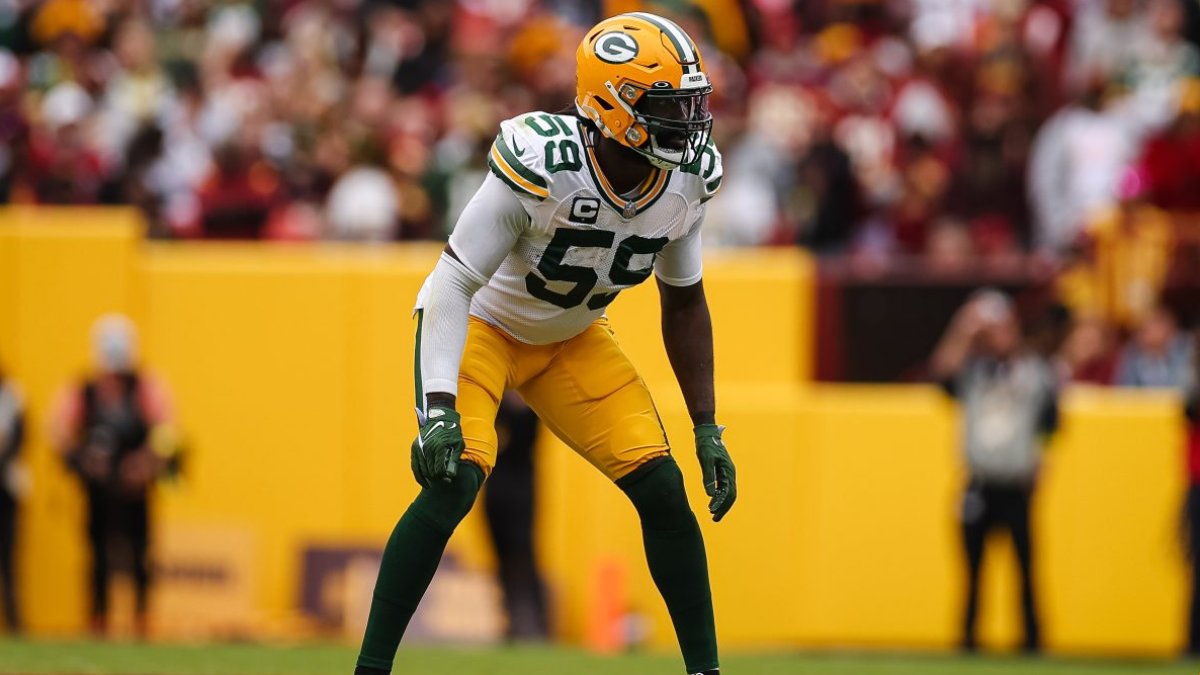
De’Vondre Campbell Refuses to Play for 49ers vs. Rams: A Crucible of Complexities
News Outline
The NFL world was thrown into disarray when star linebacker De’Vondre Campbell announced his refusal to play for the San Francisco 49ers against the Los Angeles Rams on Monday Night Football due to an undisclosed personal issue. This decision sparked a multitude of reactions, highlighting the intricate dynamics of professional sports, athlete welfare, and the debate surrounding mental health.
Perspectives and Evidence
Campbell’s Perspective
Campbell’s decision to prioritize his mental well-being over football underscores the growing importance of athlete mental health. The stigma surrounding mental health issues in the NFL is slowly diminishing as players become increasingly vocal about their struggles. Campbell’s actions could inspire other athletes to seek help when they need it.
49ers Organization
The 49ers organization has been supportive of Campbell’s decision, placing his well-being above the team’s performance. This stance aligns with the NFL’s recent initiatives to promote mental health awareness and provide resources to players. However, the organization faces the challenge of navigating the complexities of Campbell’s absence, including potential lineup adjustments and impact on team chemistry.
Fans and Media
Reactions to Campbell’s decision have been varied among fans and media outlets. Some have applauded his courage, while others have questioned the timing of his withdrawal and its impact on the team. This divide highlights the tension between the desire for athletic excellence and the need to prioritize mental health.
Critical Analysis
Campbell’s situation raises several critical considerations:
Mental Health in Professional Sports
The incident underscores the urgency of addressing mental health issues in the highly demanding and often unforgiving world of professional sports. Athletes face immense pressure, both on and off the field, which can take a toll on their emotional and mental well-being.
Athlete Autonomy vs. Team Obligations
Campbell’s decision raises questions about athlete autonomy and the obligations they have to their teams. While players should prioritize their mental health, they also have commitments to their teammates, coaches, and the organization. Finding a balance between personal well-being and team success is a delicate task.
Public Scrutiny and Privacy
Athletes often operate in the limelight, making their personal struggles subject to public scrutiny. Campbell’s decision has sparked a debate about the ethical implications of reporting on sensitive personal matters, especially when it involves mental health.
Relevant Research
- A study by the National Alliance on Mental Illness (NAMI) found that professional athletes experience mental health issues at rates comparable to or higher than the general population.
- A survey by the NFL Players Association (NFLPA) revealed that 54% of players have experienced symptoms of depression at some point in their lives.
- Research by the NCAA Mental Health Task Force suggests that the transition from college to professional sports can exacerbate mental health challenges for athletes due to increased pressure and expectations.
Conclusion
De’Vondre Campbell’s refusal to play for the 49ers has sparked a critical examination of the complexities surrounding mental health, athlete autonomy, and public scrutiny in professional sports. His decision highlights the need for continued efforts to destigmatize mental health issues, support athlete well-being, and strike a balance between personal and team obligations. As the NFL and other sports leagues evolve, it is imperative to prioritize the holistic health and well-being of athletes, recognizing that mental health is just as important as physical performance.
Reflection on Broader Implications
Campbell’s decision has far-reaching implications beyond the 49ers-Rams game. It has sparked a broader conversation about the importance of prioritizing mental health in all walks of life. It challenges the traditional notions of toughness and resilience in competitive environments, suggesting that true strength lies in acknowledging and addressing one’s emotional and mental needs. Campbell’s courage in putting his well-being first may inspire individuals outside of sports to seek help when they need it, fostering a more open and compassionate society.



